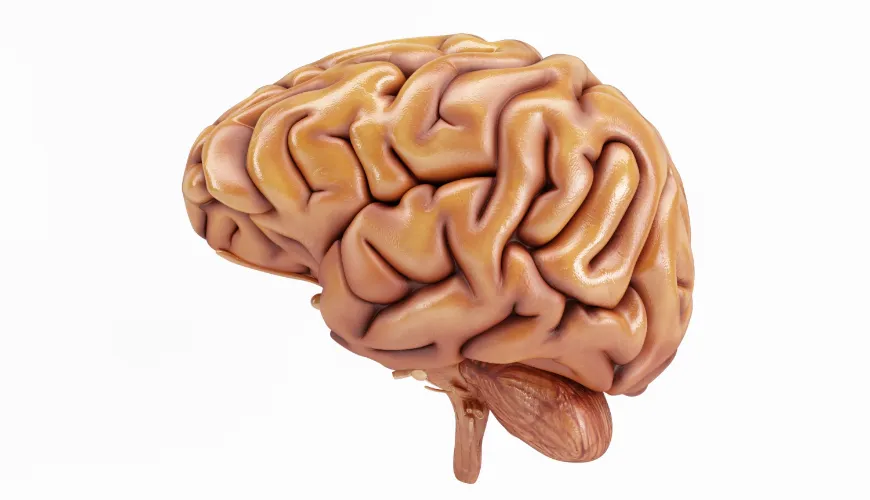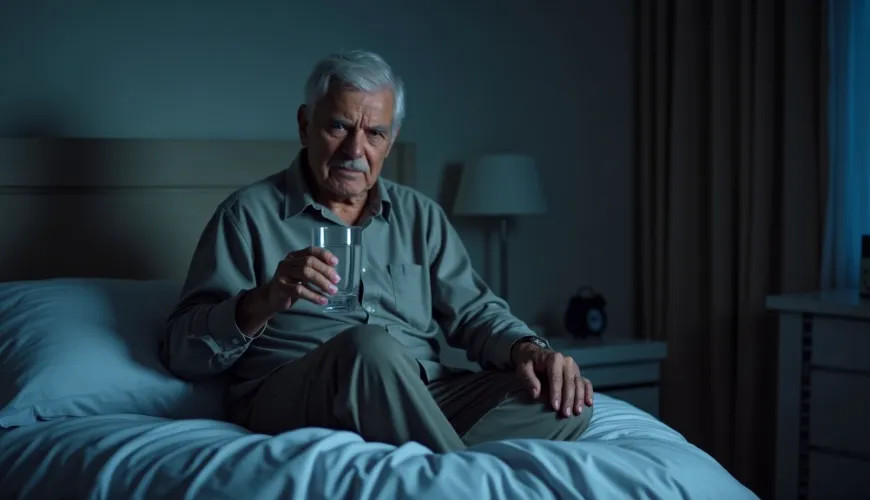
Causes of Frequent Nighttime Urination in Men and What to Do About It

Frequent Nighttime Urination - What We (Don't) Know and When to Be Alert
Waking up several times a night with the urge to go to the toilet may seem like a minor problem. But when it happens repeatedly and regularly, it could be a symptom of something more serious. Frequent nighttime urination, also known professionally as nocturia, is a condition where a person has to wake up repeatedly during sleep due to the need to urinate. This situation affects not only the quality of sleep but also overall health and mental well-being.
Whether it is frequent nighttime urination in men, women, or older people, the causes can vary, and the solution is not always straightforward. It is important, however, to talk about the problem, understand it, and know what truly helps with frequent nighttime urination.
When the Body Doesn't Calm Down at Night
It is not uncommon for people over 60 to visit the toilet at night once or twice. However, if it happens more frequently and affects the quality of sleep, it might be time to start looking for the cause. Nocturia is not a disease in itself but rather a symptom that can point to a number of other health issues.
In men, the most common cause is an enlarged prostate, formally known as benign prostatic hyperplasia (BPH). This non-cancerous condition causes narrowing of the urethra, which increases the frequency of urination, often at night. Many men over fifty have experience with this problem, but few openly talk about it. Yet, timely intervention can significantly alleviate the difficulties.
For women, the situation is different. Frequent urination at night can be caused by hormonal changes, for example, during menopause when estrogen levels drop, leading to a weakening of the pelvic floor. Other common causes include urinary tract infections, diabetes, heart failure, or simply excessive fluid intake in the evening.
A Case Study - When Fatigue Disrupts the Day
Eva, a 42-year-old teacher, long thought that frequent nighttime trips to the toilet were part of a stressful lifestyle. But when she started waking up three times a night and waking up completely exhausted in the morning, she began to address what was happening. After visiting a urology clinic, it turned out she had an untreated bladder infection that developed due to long-term neglect of symptoms.
There are thousands of similar stories. And the exhaustion that frequent nighttime urination brings is often the first signal that something is wrong. When the body is awakened several times each night, it doesn't reach the deep sleep phase. The result is not only fatigue but also weakened immunity, impaired concentration, and a higher risk of psychological issues.
What Could Be Behind Frequent Urination at Night?
There are many causes. Here are some of the most common ones that doctors encounter in practice:
- Enlarged prostate in men
- Urinary tract infections (more common in women)
- Overactive bladder
- Diabetes (both mellitus and insipidus)
- Heart or kidney failure
- Excessive fluid intake in the evening, especially caffeinated or alcoholic beverages
- Medications that increase urine production (e.g., diuretics)
- Obstructive sleep apnea, which can contribute to nighttime urination
- Psychological factors, such as stress or anxiety
Interestingly, some studies indicate that nocturia can also be an early sign of cardiovascular diseases. For example, research published in the Journal of Urology warns that frequent nighttime urination may be associated with an increased risk of hypertension and heart diseases.
Try our natural products
When Is It Time to See a Doctor?
Occasional nighttime waking doesn't need to be dramatized immediately. But if the frequency increases, you wake up more than twice a night, or urination regularly wakes you from sleep, it's advisable to see a doctor. The same applies if you notice other symptoms, such as pain, burning during urination, blood in the urine, or an unusual odor.
The doctor may recommend urine and blood tests, an ultrasound of the bladder or prostate, or urodynamic tests. In some cases, cooperation with an internist or endocrinologist is necessary if diabetes or heart issues are suspected.
What Really Works for Frequent Nighttime Urination?
The solution always depends on the cause. But there are general recommendations that can help alleviate the difficulties. One of the most effective steps is adjusting the evening routine. Limit fluid intake 2–3 hours before bedtime, avoid caffeine and alcohol, and try to use the toilet just before lying down. Some people benefit from slightly elevating their legs during sleep (e.g., using a pillow) if fluid accumulation in the lower limbs causes nocturia.
For men with an enlarged prostate, natural supplements containing saw palmetto, nettle, or pumpkin seeds may help—though the effect is individual, and it's best to consult a doctor. For women, strengthening the pelvic floor or hormone therapy can help in cases of menopausal issues.
In some cases, medications are necessary—such as anticholinergics for an overactive bladder or desmopressin, which reduces nighttime urine production. The choice of therapy is always individual and should be guided by a specialist.
Small Changes, Big Difference
Many people deal with this problem alone and try to ignore it. But the quality of sleep affects everything—from work performance and mood to the body's ability to regenerate. Therefore, it's worth admitting that frequent nighttime urination is not normal if it affects daily functioning.
As urologist Prof. MUDr. Petr Hanuš says: "People often come only when the problem is unbearable. Yet, early diagnosis can prevent further complications."
Taking care of health begins with being aware of one's own body. And if nighttime waking bothers you more than it should, it's not a weakness. It's a reason to start looking for answers. Small changes in diet, drinking habits, and lifestyle can sometimes help more than it might seem at first glance.
Whether it's men, women, or older individuals, one thing is certain—quality sleep is fundamental. And if a nighttime urge to go to the toilet stands in the way, it's worth finding out why. Because healthy sleep is more than just a luxury—it's a necessity of life.


